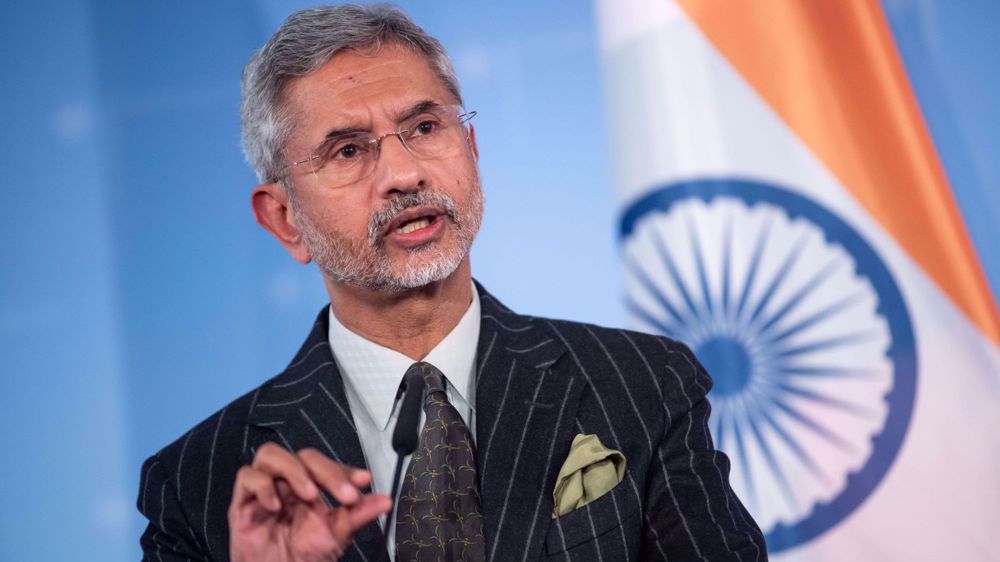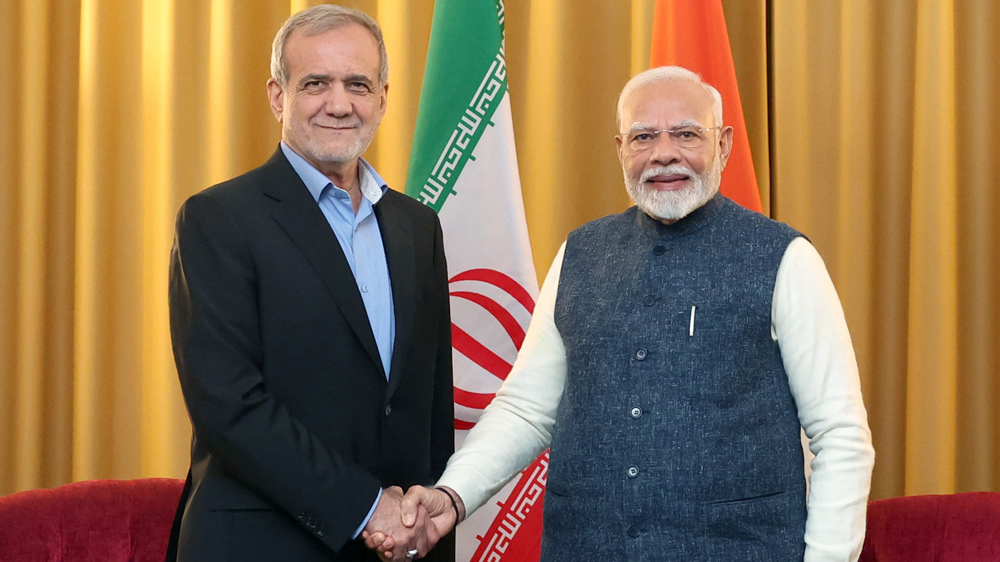Abe, Modi launch India's first bullet train project
Indian Prime Minister Narendra Modi and his Japanese counterpart Shinzo Abe have launched work on India's first bullet train project in the western Gujarat state as the two countries press on forming a regional partnership.
Modi and Abe talked about security measures at a time when both countries are on a collision course with China.
"A strong India is in Japan's interest and a strong Japan is in India's interest," Abe said on Thursday after he and Modi pressed a button at the foundation laying ceremony for the train line.
The high-speed train will link Ahmadabad, the main commercial city in Modi's native state, to India's financial capital of Mumbai.
The 500-kilometer project will be financed by Japan which will provide 85 percent of the total project cost of $19 billion in soft loans, expected to be completed by 2022.

The loans carry a nominal interest rate of 0.1 percent to be paid over the next 50 years.
The train will reduce the travel time between the two cities from eight to three-3.5 hours and have a capacity of 750 passengers.
India's traditional railway network is the world's fourth largest by distance and remains the vast country's main form of travel, with 22 million passengers commuting daily.
But passengers have to often endure chronic delays in journeys on the British-era network, where only a few trains hit 100 miles per hour, and which has been hit by a series of deadly crashes over the past years.
Modi recently replaced his railway minister after a series of derailments, including one last month which killed at least 23 passengers in the northern Uttar Pradesh state. In November, 146 people died in a similar disaster in Uttar Pradesh.
Abe and Modi also laid the foundation stone for an institute that will be set up in Gujarat's Vadodara city to train around 4,000 people to run the high-speed train system.
Analysts say building the train line will give a boost to infrastructure development in India's fast-growing western industrial region, contribute to economic growth and de-congest crowded cities.
Talks on security
Indian Foreign Secretary S. Jaishankar said officials from India and Japan signed 15 agreements aimed at widening and deepening their partnership.
The agreements include an "open skies" policy to promote more flights between the two countries, an acceleration of Japanese investments in India and a policy of enhancing connectivity in India's remote northeastern states that border China.
Jaishankar said Japan raised concerns about North Korea following its recent nuclear test.
"Japan underlined its concerns in strong terms and it was an issue where there was a complete meeting of minds," Jaishankar said.
India, he said, will fully observe a UN Security Council resolution on tightening sanctions again North Korea.
The two countries also stressed the importance of holding accountable all countries that have supported North Korea's nuclear and missile programs, a reference to China.
$15 billion trade
India and Japan signed a landmark civil nuclear agreement in Tokyo last year but their trade at $15 billion is only a quarter of India's trade with China. Japan is currently India's third largest investor.
Abe's two-day visit to Ahmadabad comes ahead of Modi's 67th birthday on Sunday. Modi has a history of 'birthday diplomacy' in his home state, hosting Chinese President Xi Jinping in Gujarat on his birthday in 2014.
VIDEO | Yemenis praise the military for its successful operations against Israel
VIDEO | Israel continues to bomb Gaza homes
VIDEO | An insider's view of the country: Meybod City in Yazd
‘All wars have rules. All of those rules have been broken’ by Israel
VIDEO | Report flags India’s violation of rights of Rohingya detainees
Turkey's foreign minister meets Syria's de facto leader in Damascus
VIDEO | US Syria plots
'Next to impossible' to rescue patients from Gaza's Kamal Adwan Hospital: Director










 This makes it easy to access the Press TV website
This makes it easy to access the Press TV website